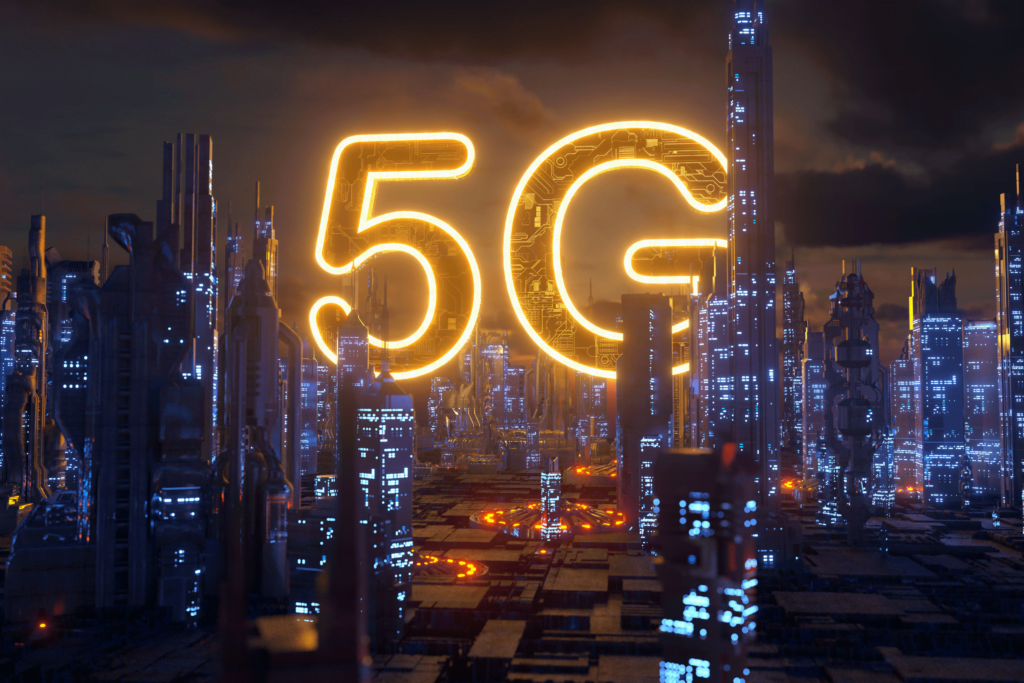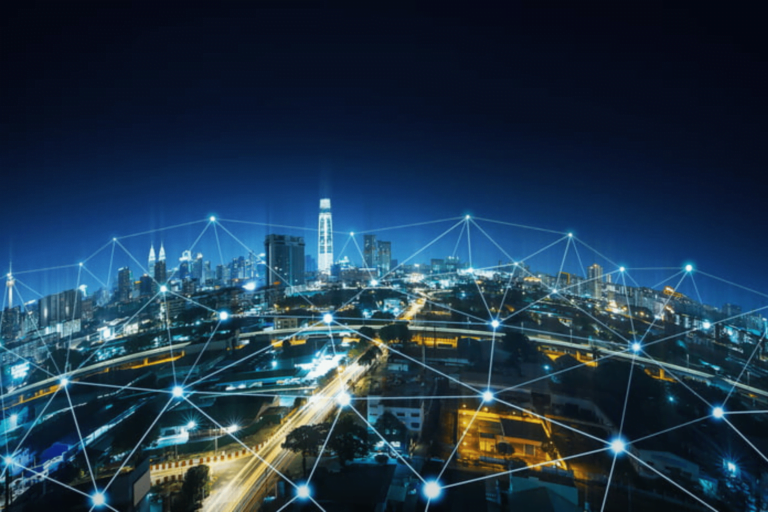On This Page
Home » Blog » The Impact of 5G Technology on Mobile Phone and Internet Services
The Impact of 5G Technology on Mobile Phone and Internet Services

Understanding 5G Technology
5G technology is the next leap in wireless connectivity, providing faster data speeds, lower latency, and increased network capacity. It utilizes higher frequency bands, including millimeter waves, to transmit data at remarkable speeds. This allows users to download and upload large files, stream high-definition videos, and engage in real-time applications with minimal delay.Exploring the Positive Impact of 5G Technology
5G technology brings a wide range of benefits, so let’s explore some of them here:Enhanced Mobile Broadband
One of the significant impacts of 5G technology is the enhanced mobile broadband experience it offers. With faster download and upload speeds, users can enjoy seamless streaming, high-quality video calls, and immersive gaming experiences on their mobile devices. 5G enables the transfer of large files in a matter of seconds, eliminating buffering and lagging issues that were prevalent in previous generations of wireless technology.Low Latency and Real-Time Applications
5G technology significantly reduces latency, the time it takes for data to travel from the source to the destination. This low latency enables real-time applications such as autonomous vehicles, remote surgery, and augmented reality (AR) experiences. With 5G, the response time between devices is nearly instantaneous, making it ideal for mission-critical applications that require split-second decision-making.Internet of Things (IoT)
The proliferation of Internet of Things (IoT) devices is another area where 5G technology has a profound impact. The high capacity and low latency of 5G networks can support a massive number of connected devices simultaneously. This opens up possibilities for smart homes, smart cities, and industrial automation, where interconnected devices seamlessly communicate with each other to optimize efficiency and convenience.Improved Video Streaming and Gaming Experience
5G technology offers an unparalleled video streaming and gaming experience. With faster speeds and reduced latency, users can stream high-definition videos without buffering and enjoy multiplayer gaming with minimal lag. The increased bandwidth of 5G networks allows for more devices to connect simultaneously. This makes it an excellent choice for households with multiple users streaming or gaming at the same time.Enhanced Connectivity for Remote Areas
5G technology has the potential to bridge the connectivity gap in remote and underserved areas. With its improved range and capacity, 5G networks can extend reliable internet access to rural communities. This enables them to connect, access educational resources, and participate in the digital economy.Faster Data Transfer for Businesses
Businesses can benefit from 5G’s faster data transfer speeds, which enable quicker sharing and synchronization of large files and datasets. This is particularly advantageous for industries such as media production, architecture, and engineering, where the exchange of high-resolution files is common.Precision Agriculture and Smart Farming
The agricultural sector can leverage 5G technology to implement precision farming techniques. With the help of sensors, drones, and IoT devices connected through 5G networks, farmers can gather real-time data about soil moisture, temperature, and crop health. This data allows for optimized resource allocation, improved crop yields, and reduced environmental impact.Augmented Reality (AR) and Virtual Reality (VR)
The combination of 5G and AR/VR technologies opens up exciting possibilities in various fields. From immersive gaming experiences to virtual meetings and remote collaboration, 5G enables high-quality, low-latency streaming of AR/VR content, making these technologies more accessible and enjoyable for users.Enhanced Mobile Advertising and Personalization
With 5G’s increased bandwidth and capacity, mobile advertising can become more engaging and personalized. Advertisers can deliver high-resolution video ads, interactive content, and augmented reality experiences that leverage real-time data to target specific user demographics and preferences, enhancing the overall advertising effectiveness.Advanced Remote Learning and E-Learning
5G technology has the potential to revolutionize remote learning and e-learning experiences. With faster internet speeds, students can access online courses, virtual classrooms, and interactive educational content seamlessly. This promotes flexible learning opportunities, particularly for individuals in remote areas or those unable to attend traditional educational institutions.Smarter Transportation and Traffic Management
5G networks enable smarter transportation systems and improved traffic management. With connected vehicles, real-time data sharing, and communication between vehicles and infrastructure, traffic flow can be optimized, leading to reduced congestion, shorter travel times, and enhanced road safety.Energy Efficiency and Sustainability
5G technology can contribute to energy efficiency and sustainability efforts. Through innovations like smart grid management, smart buildings, and optimized energy consumption, 5G networks can help reduce carbon emissions, enhance energy distribution, and promote sustainable practices across various industries.Challenges and Concerns of 5G Technology
While 5G technology brings a multitude of benefits, it also faces certain challenges and concerns. One concern is the infrastructure required to deploy 5G networks. Here are a few of them:Security and Privacy
As with any technological advancement, security and privacy are crucial considerations. With the increased connectivity and massive data transmission of 5G networks, ensuring the security of user data and protecting against cyber threats becomes even more critical. Network providers and device manufacturers must implement robust security measures to safeguard user information and maintain privacy.Deployment and Adoption
The deployment and adoption of 5G technology vary across different regions and countries. Some areas have already implemented 5G networks, while others are still in the early stages of deployment. The widespread adoption of 5G technology will require cooperation between network providers, governments, and regulatory bodies to overcome technical, regulatory, and economic challenges.Environmental Impact
The environmental impact of 5G technology is a topic of discussion. While 5G enables energy-efficient technologies and optimizations, the deployment of additional infrastructure and devices may lead to increased energy consumption. Balancing the benefits of 5G with sustainable practices and reducing the carbon footprint is crucial to mitigate any potential negative environmental effects.The Future of 5G Technology
As 5G technology continues to evolve, its impact will expand even further. Innovations such as network slicing, edge computing, and advanced applications of artificial intelligence (AI) will shape the future of 5G. The development of 5G standalone networks will provide a solid foundation for emerging technologies like autonomous vehicles, smart robotics, and immersive virtual reality experiences.To sum it up, the impact of 5G technology on mobile phone and internet services is transformative. It brings faster speeds, lower latency, and increased capacity, revolutionizing the way we connect and communicate. From enhanced mobile broadband and real-time applications to IoT and improved video streaming, the possibilities with 5G are endless. However, challenges related to infrastructure, security, and adoption must be addressed for its full potential of internet services to be realized.
FAQs
What is 5G technology?
5G technology is the fifth generation of wireless technology, offering faster speeds, lower latency, and increased network capacity compared to previous generations.
How does 5G improve mobile broadband?
5G enhances mobile broadband by providing faster download and upload speeds, seamless streaming, and high-quality video calls.
What are some real-time applications of 5G?
Real-time applications of 5G include autonomous vehicles, remote surgery, and augmented reality experiences.
How does 5G impact the Internet of Things (IoT)?
5G enables a massive number of IoT devices to connect simultaneously, facilitating smart homes, smart cities, and industrial automation.
What are the challenges of deploying 5G networks?
Challenges include infrastructure requirements, ensuring consistent coverage, and overcoming technical, regulatory, and economic hurdles.
People also read
-
 Understanding Different Internet Speeds and Choosing the Right Plan for Your NeedsJune 15, 2023/0 Comments
Understanding Different Internet Speeds and Choosing the Right Plan for Your NeedsJune 15, 2023/0 Comments -

-

-
 Exploring the Benefits of Unlimited Data PlansJune 22, 2023/
Exploring the Benefits of Unlimited Data PlansJune 22, 2023/ -

-

-

-

-













